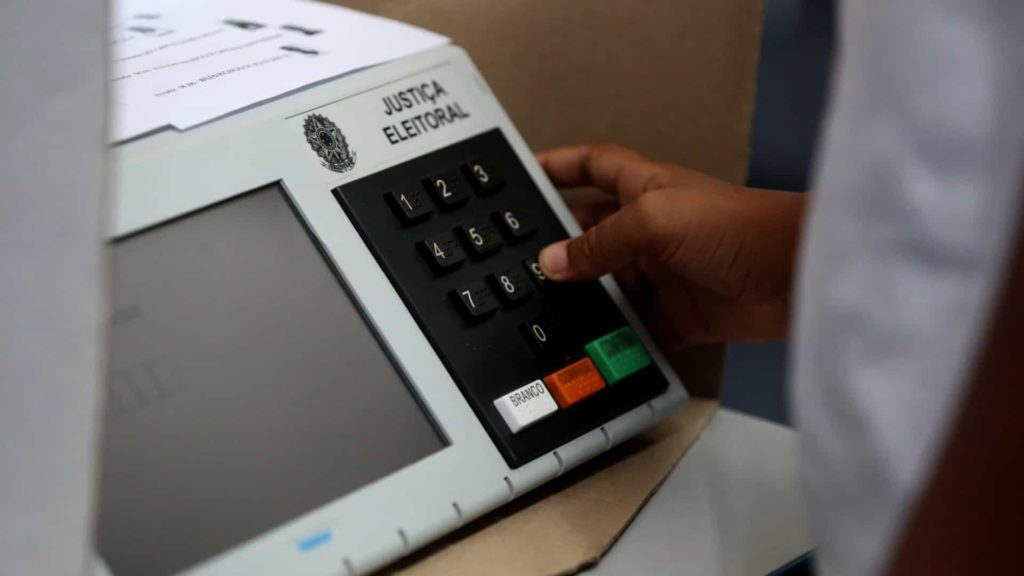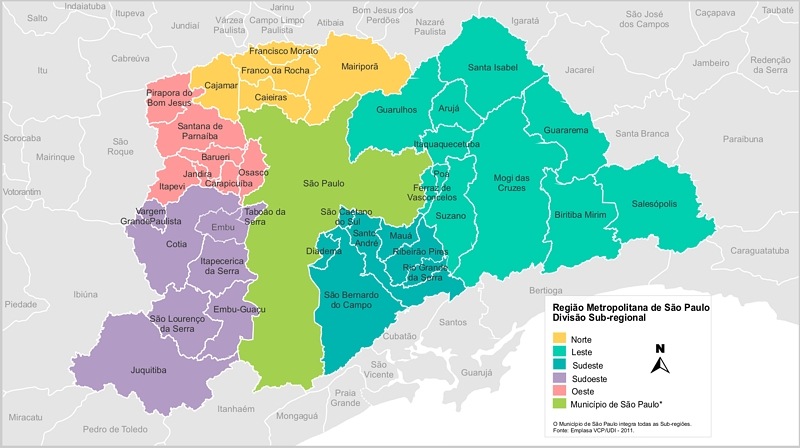RIO DE JANEIRO, BRAZIL – The municipal elections in the São Paulo metropolitan region should be marked by testing the PSDB party’s resistance to mayors and politicians from other parties, now well known to the electorate.

The disputes in Greater São Paulo also promise to bring back the polarization between the Brazilian Social Democratic Party (PSDB) and the Workers’ Party (PT) as they both seek to recover the ground lost in 2016.
That year, when ex-president Dilma Rousseff was impeached, PT lost half of the city halls it headed, some of them in the industrial ABC region just outside the capital, where for the first time since its foundation the party failed to elect a mayor.
The metropolitan region of São Paulo is made up of 39 municipalities, with a total of 21.14 million inhabitants, 56 percent of them in the capital, according to data from the SEADE (State System for Data Analysis) foundation. PSDB mayors currently govern ten of these cities, including São Paulo, Santo André, São Bernardo do Campo, and Mogi das Cruzes.
Brás Marinho, the PT coordinator for the ABC region, says the party took a “very big hit” in 2016, but it managed to recover in the region in 2018 and reelect state deputies (Teonilio Barba and Luiz Fernando) and federal deputy Vicentinho.
For the elections now rescheduled for November 15th, he says the greatest chances for the PT in the Greater ABC are in the cities of São Bernardo do Campo, Mauá, and Diadema. The party also has pre-candidates in Santo André and São Caetano do Sul.
In early July, in a videoconference that included PT President Gleisi Hoffmann, ex-president Lula, and ex-mayor Fernando Haddad, the party endorsed its state president, Luiz Marinho, as the pre-candidate for mayor of the city of São Bernardo do Campo, with 812,000 inhabitants, which he led for two terms, between 2009 and 2016.
In 2018, Marinho ran for Governor of São Paulo – he came fourth in the race, with 13 percent of the votes. In the mayoralty race he has the support of the PDT (Democratic Labor Party), Solidariedade (Solidarity party), PL (Liberal Party), PC do B (Communist Party of Brazil) and PTB (Brazilian Labor Party), in addition to Lula himself, who lives in the city and, according to the party, offered to cooperate with his ex-minister in the campaign.
The campaign strategy, according to the party, will be to compare the PT’s administration with that of the current mayor, Orlando Morando (PSDB), who has Marcelo Lima (PSDB) as his deputy and is supported by the MDB (Brazilian Democratic Movement), a party with little power in the ABC, but which is working to regain space and elect most of the region’s mayors within 10 years.
In Santo André, with almost 694,000 inhabitants, names such as city councilor Bete Siraque (PT), ex-city councilor Ailton Lima (PSB), and event manager Wagner Grillo (MDB) step in to try to curb the re-election of PSDB’s Paulo Serra.
To remain in office, the mayor has already gathered the support of ten parties from different ideological spectrums, such as the PDT and PSL (Social Liberal Party). The former party of President Jair Bolsonaro, PSL’s strategy is to launch the largest number of candidates and will have names in São Bernardo and São Caetano do Sul, for instance.
In São Caetano, with 151,000 inhabitants and the highest per capita income in the state, according to data from the 2010 IBGE (Brazilian Institute of Geography and Statistics) Census, Mayor José Auricchio Júnior (PSDB) seeks reëlection and is backed by the PL, Cidadania (Citizenship, a Center-left party) and Podemos (We Can, a Center-right party).

José Auricchio had his mandate revoked by the Electoral Court at one point for unlawful fundraising and campaign spending. In March, the São Paulo Regional Electoral Court (TRE) rejected the final appeals from Auricchio’s defense but suspended the annulment until the TSE (Superior Electoral Court) ruled on the case, thus giving the Mayor a lifeline.
According to Amilton Augusto, an attorney specializing in electoral law, only if the suspension is overturned will Auricchio risk being banned based on the Clean Record Law. If this were to occur after the election, if reelected, Auricchio could be forced to step down. The PSDB is not considering another candidate.
Auricchio’s main rival should be ex-city councilor and pre-candidate Fabio Palacio (PSD), who has the support of ex-city mayor Paulo Pinheiro (DEM). Both ran in the 2016 mayoralty elections, with Pinheiro finishing second and Palacio third.
In Guarulhos, the second-largest city in the state with 1.35 million inhabitants, PSDB is working to reach the city hall with pre-candidate Fran Corrêa, entrepreneur and wife of federal deputy Eli Corrêa Filho (DEM), who came second in the 2016 election.
The city is run by PSDB’s Gustavo Henrique Costa, known as Guti, who so far has the support of eight parties from left to right. One of the main opponents in the dispute should be PT’s Elói Pietá, another ex-mayor.
The PT candidate governed the city between 2001 and 2008. In the last election, he failed to make it to the second runoff round, finishing third and interrupting a 16-year cycle of PT mayors in the city.
In Mogi das Cruzes, with about 433,000 inhabitants, the continuity of the same political group in the city hall has been a feature for at least two decades. The city is known for being the political stronghold of Valdemar Costa Neto, an ex-deputy convicted in the Mensalão scandal, who exercises a strong influence in the area and is the national leader of the PL.
The opposition is trying to break the cycle by betting on Legislative names, but the main rival of PSDB mayor Marcus Mello in his quest for re-election, should he confirm his candidacy, is Federal Deputy Marco Bertaiolli (PSD), the city’s former two-term mayor who Mello succeeded.
The two politicians broke up after a clash over an increase in the IPTU (urban property tax). Bertaiolli stated that he should decide up to the first fortnight whether he will enter the dispute. The PL, which is part of Mello’s base, pledged to support him if this should happen.
Otherwise, the deputy says he should be personally involved to get one of the party’s city councilors to the city hall or, in a third scenario, support a candidate from another party against the former ally.
In favor of Mello and the other PSDB members in the region will be Governor João Doria, who, according to the party’s president in the state Marco Vinholi, should make an effort so that the party succeeds in reelecting its mayors and conquering more ground.
Source: Folhapress

